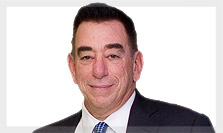 Eylea just lost its data edge on archrival Lucentis in a key patient group. Two-year data from a head to head trial found that the two drugs were equally effective in patients with diabetic retinopathy and diabetic macular edema. Both drugs beat off-label use of Roche's ($RHHBY) cancer drug Avastin.
Eylea just lost its data edge on archrival Lucentis in a key patient group. Two-year data from a head to head trial found that the two drugs were equally effective in patients with diabetic retinopathy and diabetic macular edema. Both drugs beat off-label use of Roche's ($RHHBY) cancer drug Avastin.
That's in contrast to data from the one-year mark, which showed an advantage for Eylea patients who entered the Protocol T study with 20/50 vision or worse.
Regeneron ($REGN) and marketing partner Bayer had capitalized on that earlier data, building up quite a business in DME patients. Regeneron posted $2.68 billion in Eylea sales last year--54% growth over 2014--as it poached market share from Roche's ($RHHBY) Lucentis. By the end of the year, Eylea's share in DME patients was twice Lucentis' share, executives said on Regeneron's fourth-quarter earnings call.
Absent that advantage, Eylea could see that trend shift, Barclays analyst Geoff Meacham said in a Monday note. "Eylea's superiority over Lucentis in DME has been a key factor in continued growth of the franchise and specifically gaining market share in the indication--which may now slow," Meacham wrote.
Regeneron had already warned that Eylea's growth would slow in the coming year. After that 50%-plus jump in 2015, the company forecast 20% growth for 2016. The news wasn't welcome for investors accustomed to record-setting sales growth since Eylea's launch in 2011.
The company still sees big opportunity in DME patients, partly because many of them don't get the yearly eye exams that would diagnose retinopathy to start with, and partly because many patients still seek laser treatment rather than drug therapy. Then there are the demographic trends, with patients getting older and living longer, and diabetes cases multiplying as well.
 |
| Regeneron CEO Len Schleifer |
Meanwhile, Regeneron is working to expand Eylea in diabetic retinopathy that's not driven by DME, with a Phase III study beginning later this year. That patient pool is three times larger than DME-related retinopathy, CEO Len Schleifer said during the earnings call.
Regeneron will also be working to educate patients and doctors about eye exams and drug therapy, R&D chief George Yancopoulos said. "[T]he opportunity for us is to make patients aware that they've got to get their eye exam and get into a retinal specialist if they do have any problems with their vision," he said during the call. "And that really is a major focus of our promotion this year."
Meacham said that the latest data make him more skeptical about upcoming trials in non-DME retinopathy, even though they're different indications. Plus, he said, many analysts had assumed continued DME growth because of the earlier Protocol T results, which "may be too aggressive given these data."
Right now, Barclays expects Eylea to capture 48% of the DME market this year, generating $1.2 billion in sales in that indication. "[W]e see this update potentially moderating Eylea franchise growth, potentially handicapping nearer-term commercial success," he wrote to investors, going on to say that the new data "support our view that the continued rapid pace of Eylea growth may be difficult to sustain, especially with already-high street expectations."
- read the NIH story
- and a statement from Roche
Special Report: Top 15 Drug Launch Superstars - Eylea